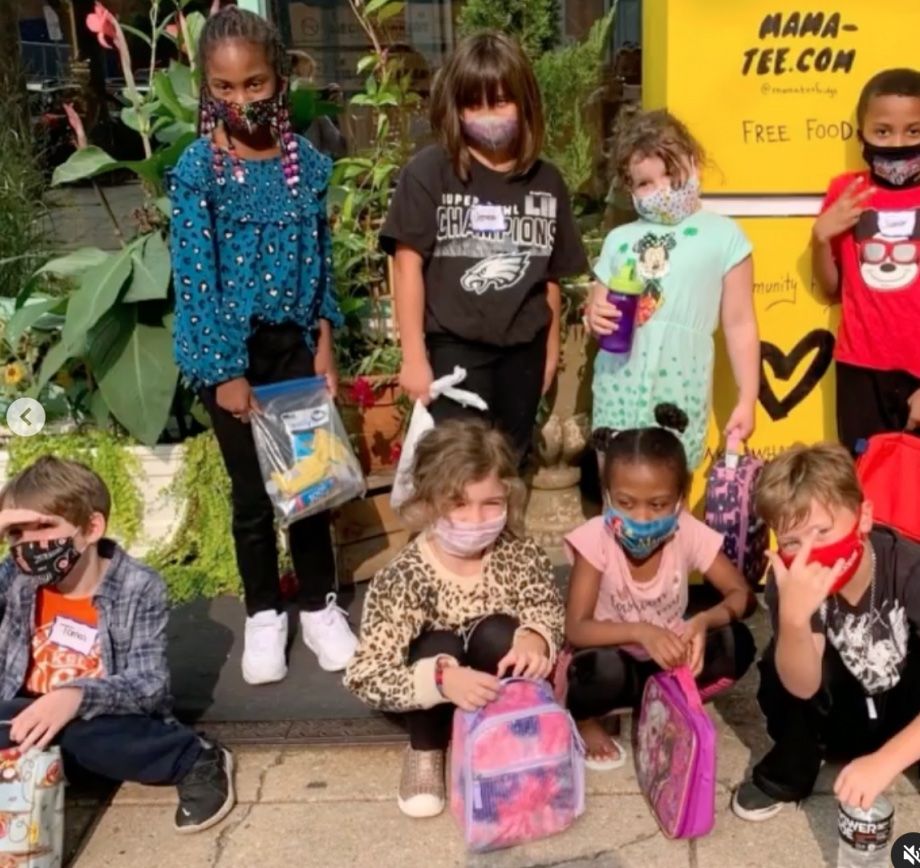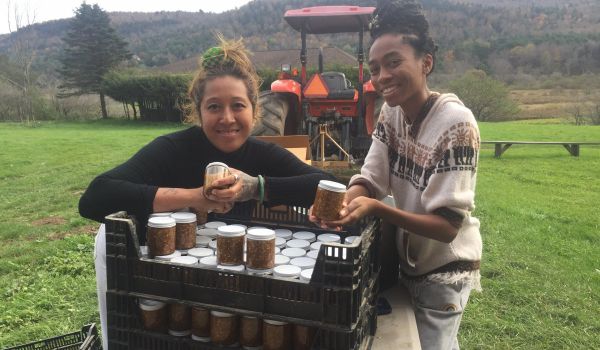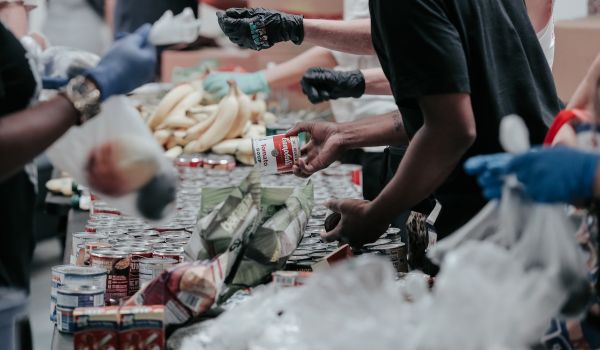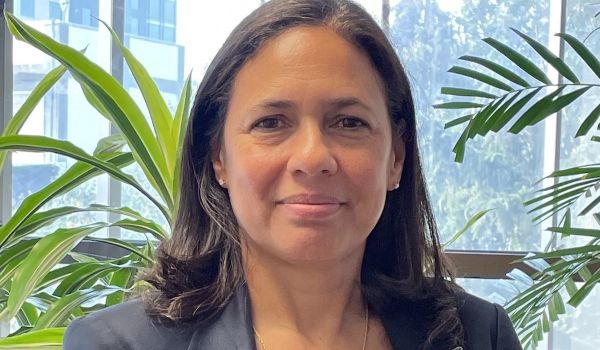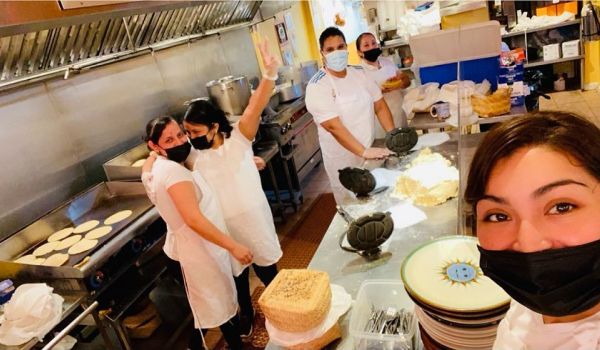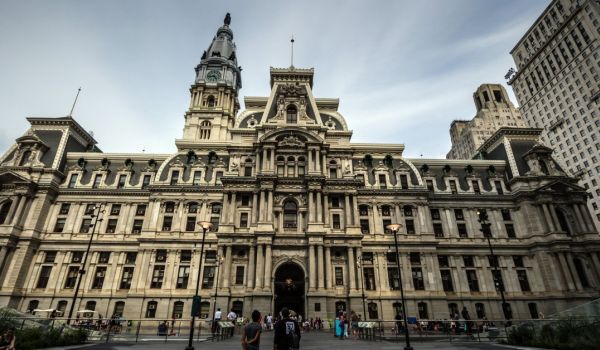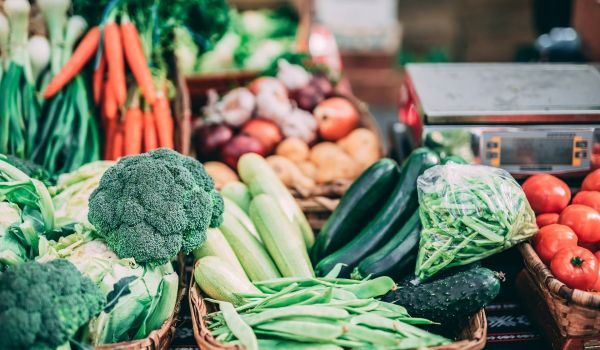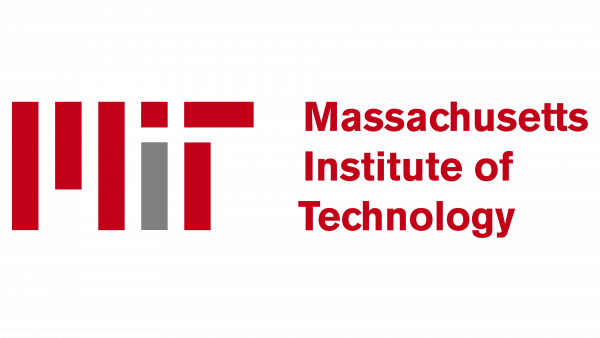Like so many others in America, Syona Arora, a former operations manager at the Franklin Institute, lost her job in March 2020 during the pandemic. Fortunately, she was offered severance pay and health insurance. Hoping to put the extra time she then had at hand into use, Arora started volunteering with mutual aid groups in Philadelphia, distributing baby supplies such as diapers and formula to people in need. That’s when she learned about community fridges from her cousin in New York City, and became instantly intrigued.
“At the time, I kind of assumed that there would have been one in Philadelphia and I was pretty surprised to learn that there actually wasn’t,” says Arora.
With her past community organizing experience and the connection she already established within the neighborhood, Arora founded the South Philadelphia Community Fridge. After a few months of hard work with community members and volunteers, the first fridge opened outside Radiance Medical Group on 6th and Tita in August 2020. They now have four locations in South Philly.
Community fridges are a grassroots mutual aid effort to address food insecurity. Organizers usually work with hosts in the community to set up fridges and food pantries, stocked with fresh produce and nonperishables such as pasta and dried beans. There are now about 30 fridges citywide that provide easy and healthy food access to people in need — a number way higher than cities with similar populations, according to data compiled by Freedge, a non-profit networking platform for community fridge activists.
Kate Towson is the volunteer organizer at South Philadelphia Community Fridge. She’s not surprised that mutual aid efforts like community fridges would thrive in a city like Philadelphia.
“A lot of communities here have been taking care of one another for a very long time. It’s a long-standing tradition,” says Towson.
Towson adds that mutual aid has long been an integral part of the city, given the strong base of progressive leadership in Black and Brown communities. Projects like community fridges roll out quickly with support from established community organizations.
Another reason that fridges seem urgently needed in Philadelphia is the city’s high levels of food insecurity and economic hardship. Philadelphia is the poorest big city in America, with a poverty rate of 23.3%, more than double the nationwide rate of 11.4% according to 2020 census data.
Mariana Chilton is the director of the Center for Hunger-Free Communities at Drexel University. She has been studying food insecurity in Philadelphia for more than 20 years. She explains that many people don’t want to participate in government assistance programs such as SNAP because of the stigma associated with doing so.
“They would much rather work and make their own money,” says Chilton. “There’s an enormous amount of stigma and discrimination that they experience at the cash register in the grocery store.”
She also cites as deterrents program restrictions and the often “humiliating” experience of applying at the county assistance office.
Sonia Parikh, the founder of the People’s Fridge in West Philly, believes this is another reason why community fridges are so successful in Philadelphia.
“[They] create a resource without any repercussions or pre-qualification for you to take from the fridge. It’s just a free resource for everyone to get groceries from whether you are ‘in need’ or not,” says Parikh.
Chilton also applauds the mutual aid efforts like the community fridges but argues that they don’t address the root causes of poverty in the city.
“I love the community fridge idea…It’s an expression of community care and of mutuality. It does help some people and we need more of that community creativity and community care,” says Chilton. “It’s not going to make or break food insecurity rates, though. It’s going to do absolutely nothing to address poverty.”
Chilton explains that food security will not improve as long as nothing significant is done to address low wages, poor public assistance programs and lack of investment in schools and neighborhoods.
Mutual aid organizers are aware that what they’re doing is not the one long-term solution to the problem at hand, but they believe every little bit helps. Victoria Wilson is the operations director at Sharing Excess, a college student-led organization that delivers regular surplus from grocers, restaurants, wholesalers, and farmers to communities experiencing food insecurity in Philadelphia. They have partnered with several community fridges organizations, including South Philadelphia Community Fridge and the People’s Fridge, to help stock them with fresh produce.
“Like any sort of societal issue, there’s always going to be multiple root causes. But it’s about having the resources to make at least a little bit of a change and hoping that someone else out there is making the other half of the change,” says Wilson.
By developing relationships with organizations such as Sharing Excess, community fridges in Philadelphia are able to sustain their growth.
Mama-Tee, the largest community fridge organization with 18 locations in Philadelphia, receives food donations regularly from Sharing Excess. The founder, Michelle Nelson, explains that starting and maintaining community fridges is not easy work. It is a constant, everyday responsibility that shouldn’t be taken lightly.
“Our team needs to be well equipped to handle a lot of different situations and be educated about community refrigerators,” says Nelson.
A team of more than 30 volunteers is dedicated to handling the upkeep of the 18 Mama-Tee fridges. The South Philadelphia Community Fridge team has a list of more than 50 volunteers actively participating in restocking and cleaning the fridges. The People’s Fridge also has a team of 40 people to do grocery runs for the fridge three times a week.
More resources are also coming in to aid these community efforts. Mama-Tee has just opened a pop-up free grocery store in partnership with Whole Foods. Whole Foods will donate 500 pounds of food monthly to the store. Trader Joe’s and Philadelphia Wholesale Produce Market are now also donating surplus food to Sharing Excess five times a week.
Nelson believes that instead of trying to do everything, focusing on what you can do at the moment is more important.
“If you try to please everyone, you end up pleasing no one. You have to pick your lane. You have to dedicate to what you are going to do,” says Nelson.

Hayley Zhao is the INN/Columbia Journalism School Intern with Next City for fall 2021. Zhao graduated from Columbia Journalism School in May 2021 with a focus on education and environmental reporting.
.(JavaScript must be enabled to view this email address)

